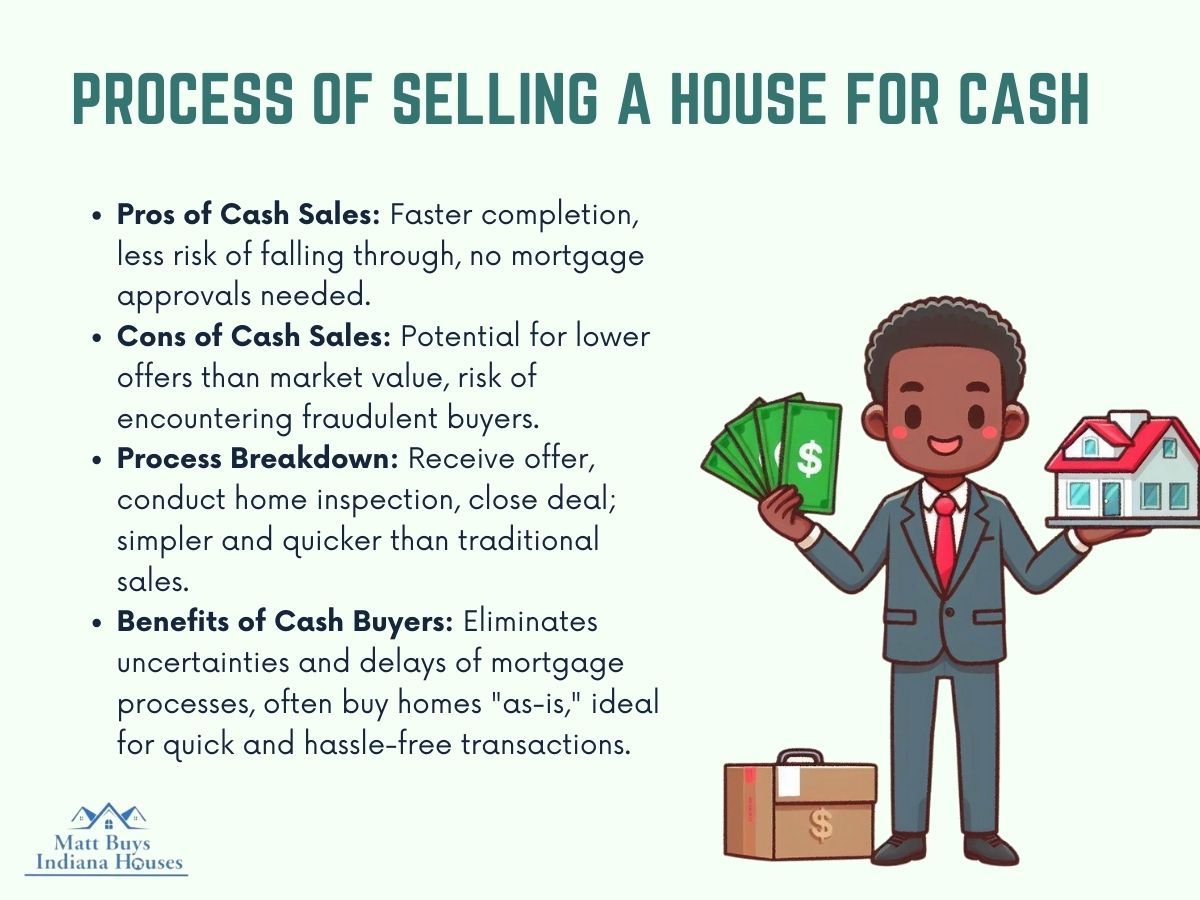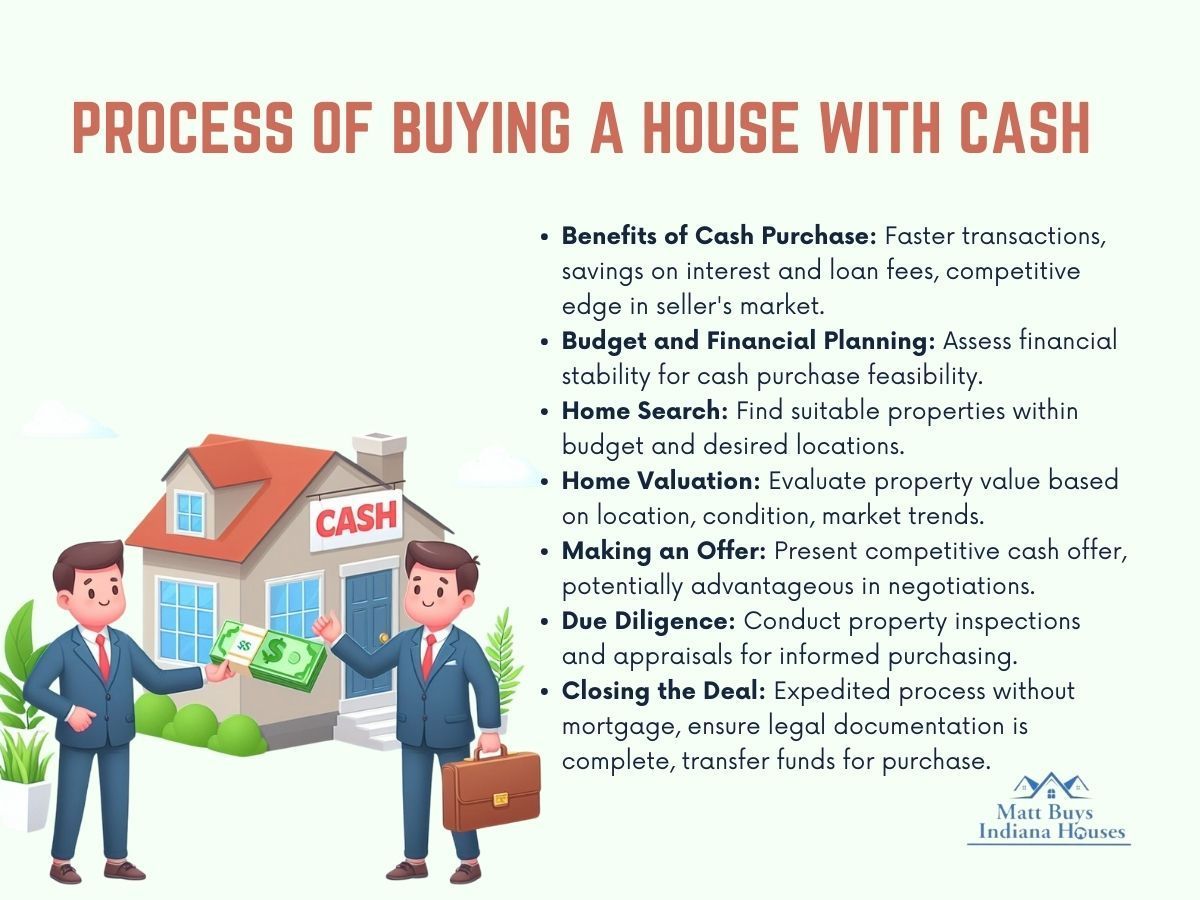Demystifying the Home Valuation Process for Cash Sales
January 27, 2024
When it comes to selling your home for cash, the process is different from a traditional sale, but it can also be much easier. If you're considering a cash offer on your home, it's important to understand the steps involved.
From signing the contract to the timeline for closing, there are several key aspects to be aware of. In this blog, we will demystify the home valuation process for cash sales, breaking down everything you need to know to be prepared for an all-cash offer on your home.
Whether you're in a selling time crunch or simply looking for a hassle-free sale, understanding the cash sales process is the first step towards a successful transaction.
Factors that Influence Home Value
Demystifying the home valuation process for cash sales begins with understanding the factors that significantly impact a home's value. Whether you're selling or buying, knowing these elements is crucial.
Location
The adage "location, location, location" holds true in real estate. The value of a home is greatly influenced by its geographical position.
Factors like the quality of local schools, proximity to employment hubs, access to amenities, and neighborhood safety play a significant role. Properties in desirable locations often fetch higher prices, even in cash sales.
Age and Condition
Next, the age and condition of the property are pivotal. Newer homes might command higher prices due to modern features and fewer repair needs.
However, well-maintained older homes can also be valuable, especially if they have historical significance or unique architectural features. Buyers and sellers should consider how the age and upkeep of a property affect its valuation in a cash sale scenario.
Size and Features
Lastly, the size and features of a home contribute to its value. Square footage, the number of bedrooms and bathrooms, and additional amenities like a pool or a large yard are aspects that buyers often consider.
In cash sales, these features can be bargaining points that significantly sway the final agreed-upon price.
The Process of Selling a House for Cash
Understanding the process of selling a house for cash is essential. This section outlines the pros and cons, the steps involved, and the benefits of this type of sale.

Pros and Cons of Selling a House for Cash
Selling a house for cash has its advantages. Speed is a major benefit, as cash sales can often be completed faster than traditional sales. There's also less likelihood of a sale falling through due to financing issues.
However, sellers might receive lower offers compared to the market value, and there's a risk of encountering fraudulent buyers.
Simplified Breakdown of the Process
The process of selling a house for cash is relatively straightforward. It typically involves receiving an offer, conducting a home inspection, and closing the deal. Unlike traditional sales, there's no need for mortgage approval processes, which simplifies and speeds up the transaction.
- Receive Offer: Seller obtains a cash offer from the buyer.
- Home Inspection: Conducted to assess the property’s condition.
- Negotiation: Seller and buyer negotiate terms and price.
- Legal Verification: Ensuring clear property title and legal compliance.
- Closing the Deal: Finalizing sale with payment and transfer of ownership.
- No Mortgage Approval: Bypasses traditional mortgage financing process.
- Quick Transaction: Typically faster than conventional sales.
- As-Is Sale:
Often no need for repairs or upgrades by the seller.
Benefits of Selling to a Cash Buyer
Selling to a cash buyer can be advantageous. It eliminates many of the uncertainties and delays associated with mortgage approvals in traditional sales. Cash buyers often purchase homes "as-is," reducing the need for repairs or upgrades. This can be particularly beneficial for sellers looking for a quick and hassle-free sale.
The Process of Buying a House with Cash
Demystifying the home valuation process for cash sales is not just about selling; it's equally important to understand the buyer's perspective. Buying a house with cash has distinct advantages and a unique process.

Benefits of Buying a House with Cash
The most significant benefit of buying a house with cash is the speed of the transaction. Without the need for mortgage approvals, cash purchases can be completed swiftly.
Buyers also save on interest and loan origination fees, potentially getting more value for their money. Additionally, sellers might favor cash buyers in a competitive market, increasing the buyer's chances of securing the property.
Step-by-Step Guide to Buying a House with Cash
- Budgeting and Financial Planning: Assess your finances to ensure a cash purchase is feasible without straining your financial stability.
- Home Search: Identify properties within your budget in your desired locations.
- Home Valuation: Before making an offer, understand the true value of the property by considering factors like location, condition, and market trends.
- Making an Offer: Present a competitive offer to the seller. Cash buyers often have an edge in negotiations.
- Due Diligence: Conduct a thorough inspection and appraisal of the property. Even though you're paying cash, understanding the condition of the home is crucial.
- Closing the Deal: With no mortgage process, closing can be much quicker. Ensure all legal documents are in order, and transfer the funds to complete the purchase.
The Real Estate Sales Process
For sellers, demystifying the home valuation process for cash sales also involves understanding the broader real estate sales process. This includes listing the property and navigating the market dynamics.

Preparing a Sales Listing for the Property
Creating an effective sales listing is key. This involves staging the home, taking professional photographs, and writing a compelling description. Highlight unique features and ensure the listing is visible on major real estate platforms. A well-prepared listing can attract more potential cash buyers.
Reviewing Active and Pending Listings
Understanding the competition is crucial. Review active and pending listings in your area to gauge market trends and pricing. This helps in setting a realistic price for your property and understanding what buyers might expect.
Understanding Potential Hurdles
Several hurdles can impede a sale. These include issues uncovered during home inspections, discrepancies in property valuation, and legal complications like unclear titles. Being aware of these potential challenges allows sellers to address them proactively, smoothing the path for a successful cash sale.
Timeline for a Cash Sale: Start to Finish
In demystifying the home valuation process for cash sales, understanding the timeline is crucial. A cash sale typically moves faster than a traditional sale involving financing, but knowing each step helps both buyers and sellers navigate the process efficiently.
Making an Offer and Seller Acceptance
The first step in a cash sale is making an offer. Once a buyer finds a suitable property and completes their valuation, they present an offer to the seller.
This offer should be competitive, reflecting both the market value and the advantages of a cash transaction. For sellers, receiving a cash offer can be appealing due to the simplicity and speed of the transaction.
Upon receiving the offer, the seller will review and either accept, reject, or counter the offer. This negotiation phase is critical and can be swift, as cash sales don't hinge on financing approvals.
Providing Proof of Funds
Once the seller accepts the offer, the next step for the buyer is to provide proof of funds.The buyer must present documentation, such as bank statements or a letter from a financial institution, to prove they have the funds available to complete the purchase. This step reassures the seller that the buyer is serious and capable of closing the deal. It's an important formality that provides transparency and trust in the transaction.
Closing the Sale
The final stage in a cash sale is closing the deal. This process is typically faster than a financed purchase since it bypasses the lengthy mortgage approval process.
Closing involves several steps, including signing the necessary legal documents, transferring the title from the seller to the buyer, and handling other legal and regulatory requirements. Since there's no lender involved, the paperwork and processing time are greatly reduced.
During closing, both parties will settle any closing costs, which can include title insurance, escrow fees, and property taxes. In a cash sale, these costs might be lower, as there are no lender-related fees.
Finally, the buyer transfers the agreed-upon amount to the seller, often through a certified bank check or wire transfer. Once the funds are received, and all paperwork is completed, the keys are handed over, and the property officially changes hands.
This closing phase concludes the cash sale process. The timeline from making an offer to closing can range from a few days to a few weeks, depending on various factors such as the readiness of the buyer and seller, the complexity of the transaction, and the efficiency of the legal and financial professionals involved.
How Home Buying Companies Determine the Value of Your Home
In wrapping up our exploration of "Demystifying the Home Valuation Process for Cash Sales," it's clear that understanding the nuances of cash transactions is crucial for a successful sale.
As we've delved into the various facets of this process, from evaluating pros and cons to preparing your home for sale, we've gathered valuable insights to guide homeowners through this journey.
Now, shifting our focus to a related yet intriguing aspect, our next blog will explore "How Home Buying Companies Determine the Value of Your Home." This will offer a deeper understanding of the other side of the transaction, providing a comprehensive view of the home selling and buying ecosystem. Stay tuned for more enlightening discussions!











